If cancer and getting hit by a truck can't stop James Golding, who'll stop him winning Race Across America?
The 2020 event has been postponed, but the Brit is fully focused with taking on the 3,000-mile race this time next year
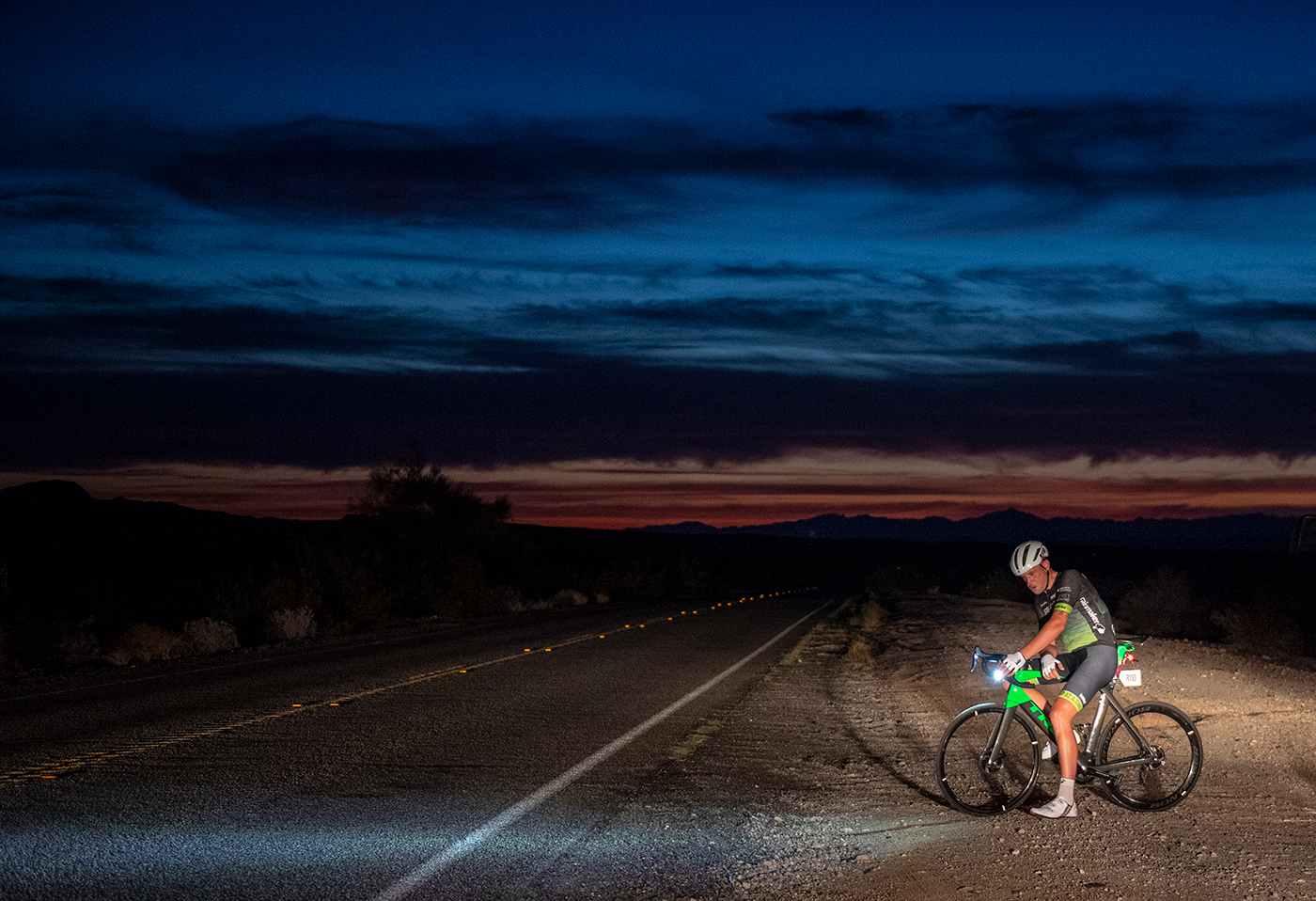
James Golding (Joolz Diamond Photography)
The first thing James Golding would like to say is that he's never done the Race Across America before, so a lot of what he says are best guesses or theories and plans cooked up by him and his team. But ultimately, why take part in a race without even the slightest wish to cross the finish line first?
The ultra-distance bike race, held annually across the United States since 1982, sees riders race from west coast to east coast non-stop, with no individual stages.
The 40-year-old Brit has had to put his ambitions of taking on challenge fewer people have completed than have climbed Mount Everest, as this year's event was cancelled due to the coronavirus pandemic. However, waiting for next June to roll around will probably be low down on the list of challenges Golding has had to overcome. He's beaten cancer twice, survived being hit by a truck during a ride across America, set Guinness World Records, tackled the Haute Route 'Triple Crown' and raised more than £3 million for charity.
"Im not sure I'd put Race Across America (RAAM) down as an adventure and it's certainly not a process either, it's a goal," Golding tells Cycling Weekly, evaluating the latest challenge he's ordered off the menu at his own, peculiar restaurant of cycling pain. "RAAM has appealed to me for a very, very long time. I've always said I want to do RAAM. I wanted to, I wanted to be good at RAAM, the idea of winning race across America was never on my radar, that's never something that I'd thought about until we did the seven-day world record."
Golding broke the Guiness Seven Day Cycling World Record in 2017, riding 1,766.2 miles around Rugby, simplyfing the process after an earlier failed attempt by leaving and arriving back at his house every morning and evening. He then shared his data from the effort with a number of people in the know who said if he could ride for three hundred miles a day at 18mph with an average heart rate of 104, as he had done, then he becomes someone who can win Race Across America.
"You don't just become somebody that can ride it," Golding explains. "And that was kind of where it changed a lot. I'm not trying to be cocky about it or arrogant, I'm not going there with this impression that I'm going to win and I'm better than all the other people going. That's not the case. For me, it's much, much more about having a goal."
>>> Meet the man cycling 100km a day for 100 days
Get The Leadout Newsletter
The latest race content, interviews, features, reviews and expert buying guides, direct to your inbox!
His theory is that if you, the team around you and your sponsors adopt this mindset, everyone ups their game in the pursuit of victory and that it will manifest itself in every facet of your preparation. Sort of like Team Sky's marginal gains meets a left-field professor on a Joe Rogan podcast.
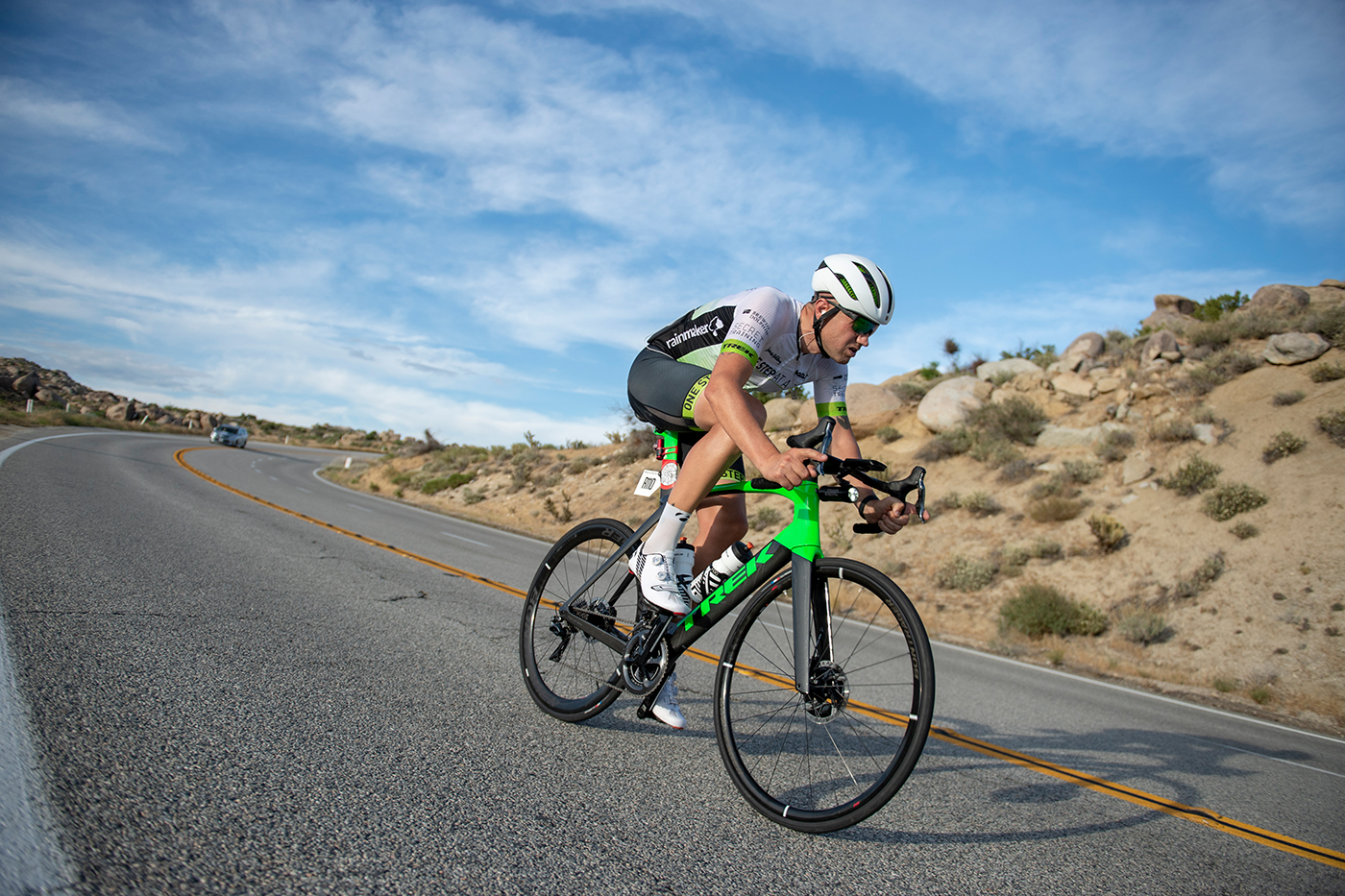
"Now if we get there and whatever happens, if somebody else beats me, then that's fine. I have no issue with that. That means that somebody else who was there was better than me and had a better ability than I did. But I went there with the attitude of winning it and the mentality of winning it.
"Some people say, 'you're being a bit cocky by saying you're going to win RAAM' so I say would it make you feel better if turned round and said I'd have a go. Is anybody standing on that start line to come last? Or any start line?
"Why should we have to dampen down our ambition because we're worried about what somebody else might think about it? You know, go there with the attitude that You are going to do the best that you can possibly do.
"I want people to know that James Golding did everything he could and he put passion and drive into what he was doing and that's what it was about."
When the time comes, will RAAM be more of a race against himself rather than other people?
"If you look at it, Race Across America doesn't start until you're five days in. My theory is we have to look at the time we want to achieve this course in and we have to work out our data, which I'm not sharing with anybody at the moment," Golding explains.
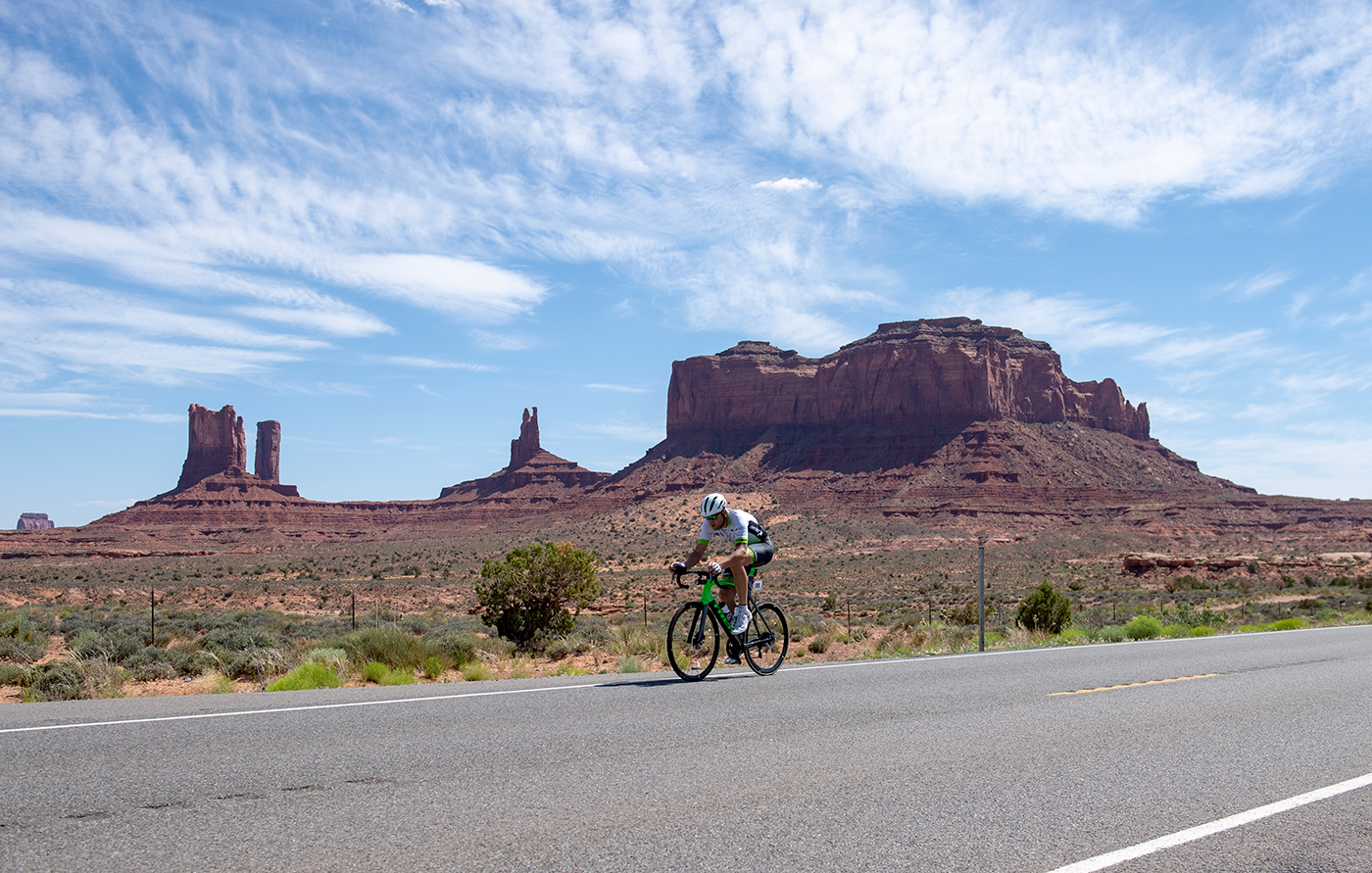
"If we get to day six and there's somebody up the road do we push harder to go and catch them? If there's somebody chasing us and they're gaining on us do we push harder to get away? I think that's where you really go into race mode, in those last two or three days. It sounds stupid but it's those last thousand miles where you really kind of go, 'okay, Where are we at?' If we're sitting in third and we can catch the two in front of us if we put the hammer down, then let's go or if we're in eighth but we can make sixth.
"The first 900 miles... that first kind of three to four days is probably the toughest part of the route because that's where you go into the highest elevation. It's basically the Race Across the West, which is what we did last year. You go from Oceanside, California, which is obviously sea level, but by 900 miles you're sitting at the top of Wolf Creek pass (10,000ft above sea level). So you're basically going uphill for three days. But you won't see it, there are very few hills that you see it's just rolling, gradual steady uphill."
Golding's preparatory Race Across the West, was captured by Red Bull in the short film "the man who refuses to die", the piece providing a nice overview of everything he has gone through to get to this point.
The story of how Golding went from an estate agent overly pursuing material wealth to finding his true love for endurance cycling is a life-affirming one and his self-belief in what he wants to achieve is backed up by the life and death hardships he's encountered on his journey to this point.
Golding was first diagnosed with cancer aged 28, surviving an illness "no-one expected me to survive". The cancer then returned a few years later when his wife Louise was expecting their first child. Golding continued training and riding during his treatment, completing London to Paris, before being given the all-clear in 2012.
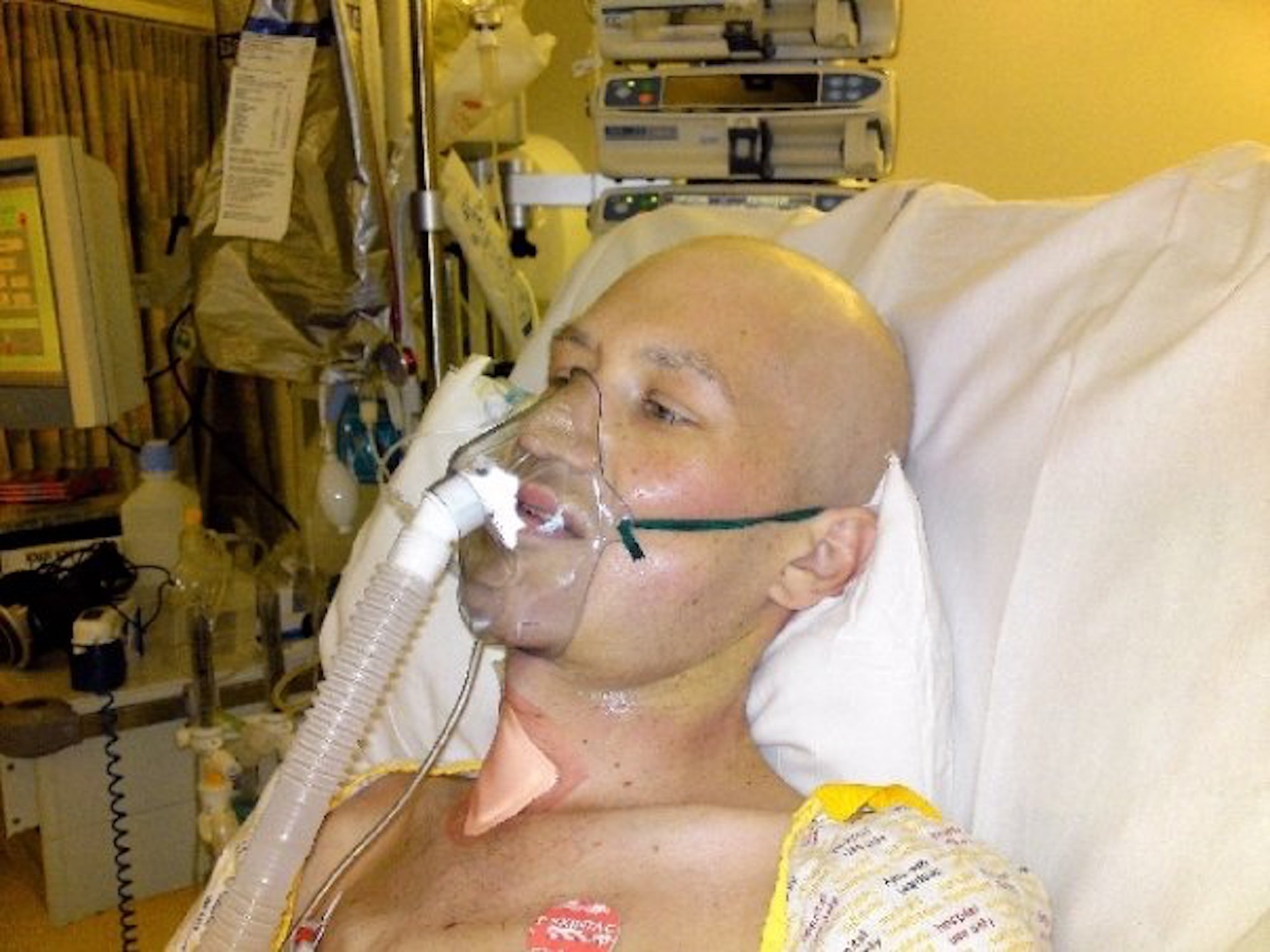
Endurance race seems like a comparative walk in the park compared with coming back twice from life-threatening illnesses. The key with performing at these sorts of events, Golding says, is finding a rhythm you can comfortably sit in for a long period of time. That's why he often finds the toughest parts of them in the first half after setting off a little too hard and paying for it in the proceeding days.
For Golding, it's the fact of having "nowhere to hide" during endurance events that attracts him to them.
"It's very much about you and what you've got," he says. "There's an element of pacing it, it's not just all guns blazing. It's something that I kind of fell into, it wasn't necessarily a direct choice but it's something I've fallen in love with and found I'm pretty good at. I think I'm good at it anyway."
Golding adds the popularity of these sorts of bike races has developed a lot over the last decade or so but that there is still a lot of room within the space. He says it's taken a while for everyone to realise different people adapt to different styles of riding, which is now becoming increasingly catered for in terms of events.
Also, with technology such as Strava, route planning has become far easier, as well as the increased knowledge about fuelling making the discipline more accessible and enjoyable.
"I think I've always had this ability to be the rider that I am now but nobody picked up on it when I was younger and said 'you should really try some of the really long distance stuff,'" Golding says. "I was a good mountain biker but nobody ever tried to push that forward."
For now, Golding can push forward, as he lays the groundwork from his new base in Portugal ahead of 12 months of preparation before RAAM 2021.
But finally, a cancer survivor who is fond of two wheels and fought back from illness to a level of competitiveness few could imagine let alone achieve. There is one question that has to be asked. Lance.
"Strangely, I'm being asked about this quite a lot at the moment because of the documentary. I think no matter what answer I give to that question there are going to be some people that agree with you there are going to be some people who'll disagree with you," Golding prefaces the question of what his personal relationship with Armstrong is.
"Some days I really feel.. I'm trying to choose my words carefully here," he begins. "Take away the Tours [de France], take away what happened afterwards... I've laid in hospital with a drip in my arm with a shaven head unable to eat, unable to do anything, barely able to move, yet I've got a book in my hand that illustrates to me that somebody else has gone through being in a similar or worse situation than I am, to recovering to getting back on a bike, being able to stand on the start line at the Tour de France.
"Whether they conducted themselves properly or not, I think, is kind of irrelevant to this question from my point of view."
Today, Golding doesn't know how he feels about the man who helped him through some of his darkest moments, but the help the Texan unknowingly provided him will never be forgotten.
"Lance Armstrong was a hope that I held on to. I don't know how I feel about him now. I don't know if I had the chance to meet him what I would do, or the chance to ask him a question what I would ask him. These aren't things I need to think about as they're not going to happen.
"However, laying in hospital, on the edge of life, standing on the edge of that cliff, at the time he created a lot of positivity around my recovery and understand there is a way back from it."
The way back for Golding has been an indescribably tough one, and the next step of it lies along 3,000 miles of American road.

Thank you for reading 20 articles this month* Join now for unlimited access
Enjoy your first month for just £1 / $1 / €1
*Read 5 free articles per month without a subscription

Join now for unlimited access
Try first month for just £1 / $1 / €1
Jonny was Cycling Weekly's Weekend Editor until 2022.
I like writing offbeat features and eating too much bread when working out on the road at bike races.
Before joining Cycling Weekly I worked at The Tab and I've also written for Vice, Time Out, and worked freelance for The Telegraph (I know, but I needed the money at the time so let me live).
I also worked for ITV Cycling between 2011-2018 on their Tour de France and Vuelta a España coverage. Sometimes I'd be helping the producers make the programme and other times I'd be getting the lunches. Just in case you were wondering - Phil Liggett and Paul Sherwen had the same ham sandwich every day, it was great.
-
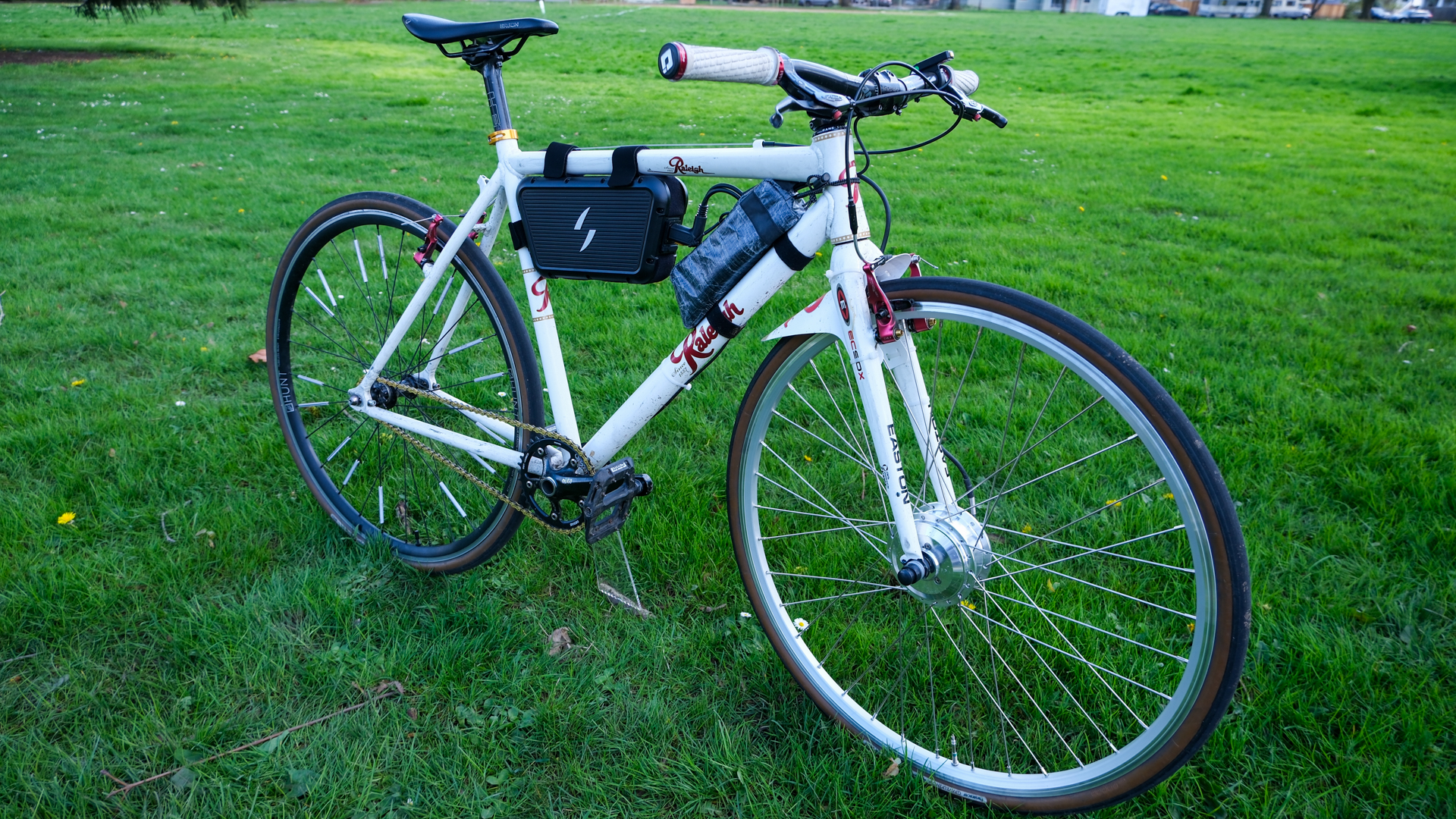 5 things I wish I’d known before reviewing the Swytch GO e-bike conversion kit
5 things I wish I’d known before reviewing the Swytch GO e-bike conversion kitSwytch offers an effective, albeit untidy, workaround for e–bike–curious riders. But as prices drop on full e-bikes, its value proposition may be fading
By Anne-Marije Rook
-
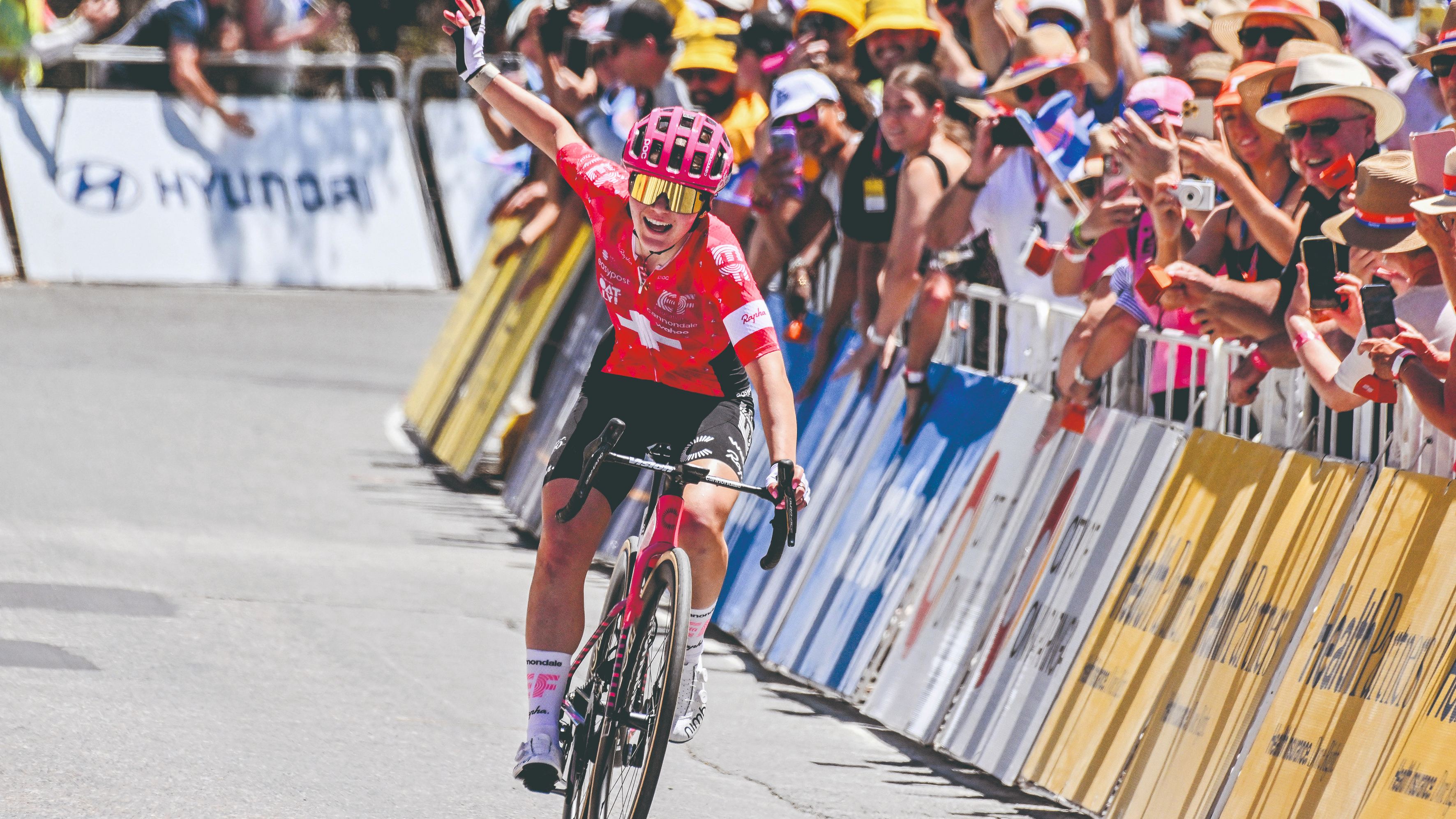 How do the pros train? Noemi Rüegg's 26 hour training week
How do the pros train? Noemi Rüegg's 26 hour training weekWinner of this year’s Tour Down Under, the EF Education-Oatly rider is a climber whose talent is taking her to the top
By Chris Marshall-Bell